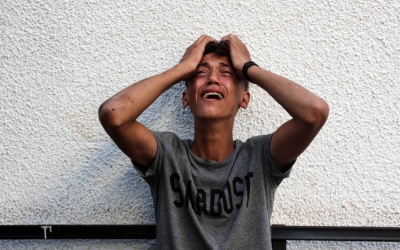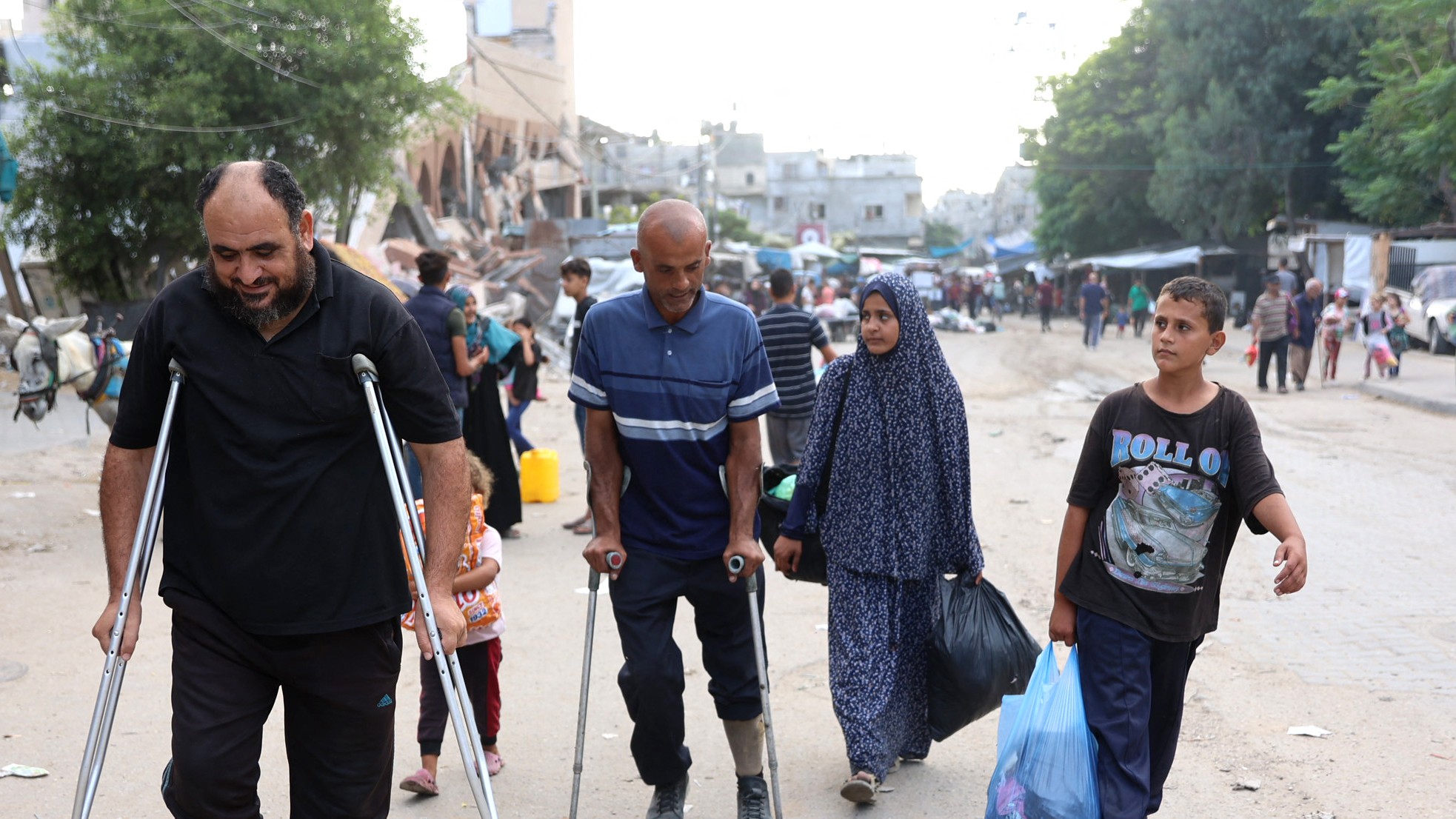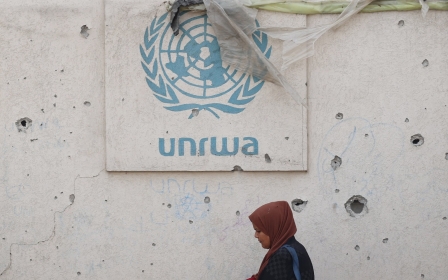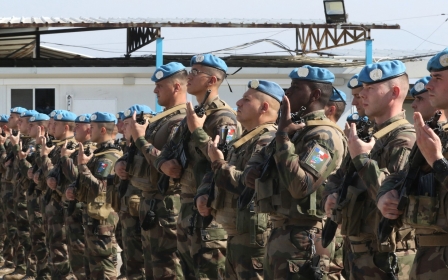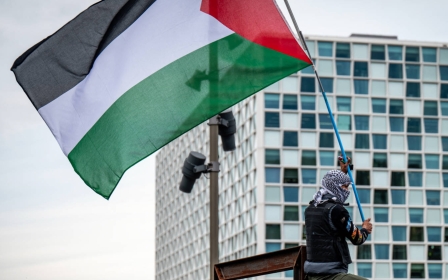Israel’s Generals' Plan in north Gaza is 'genocidal' and 'perversion of law', say experts
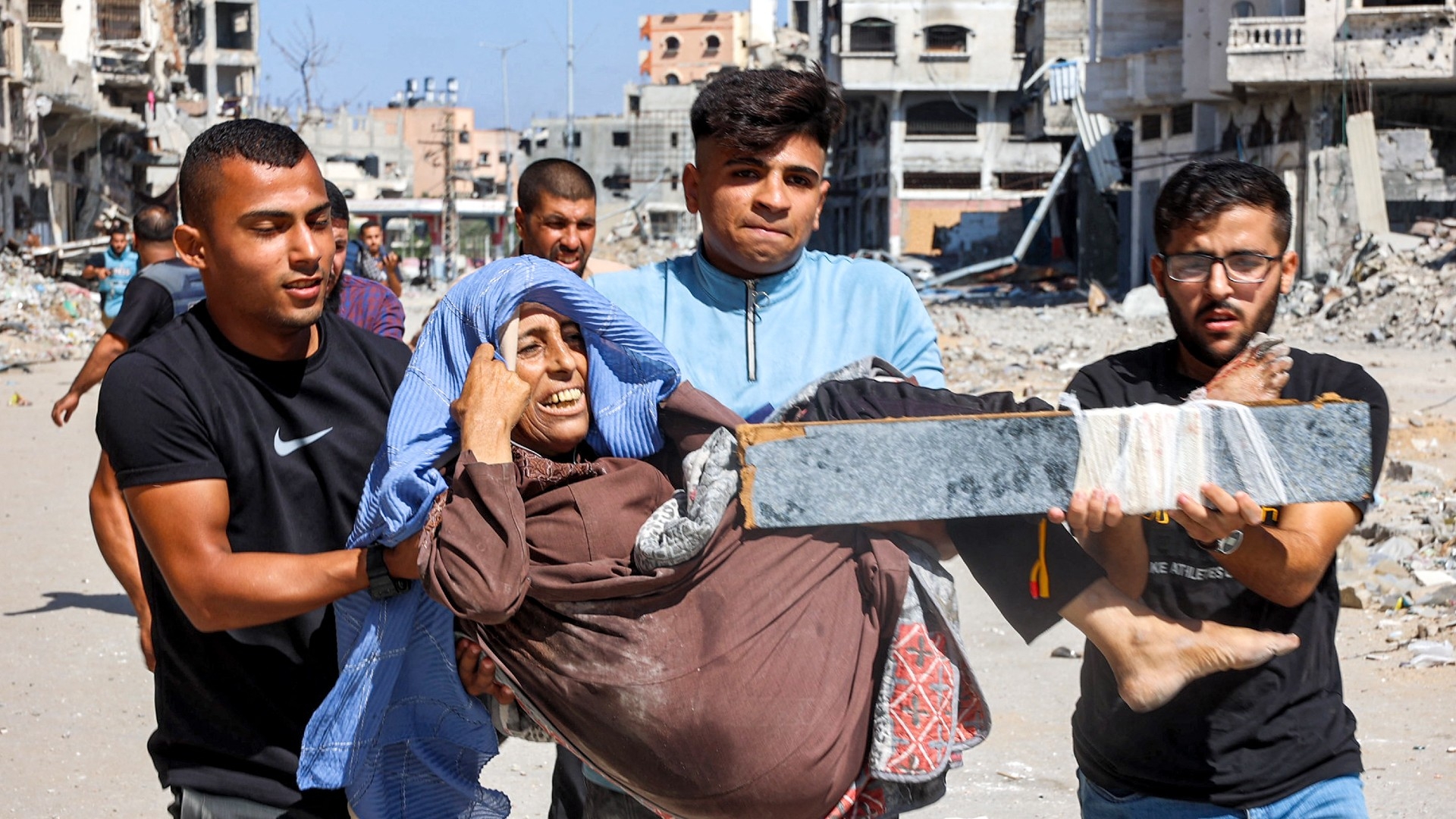
For a month, Palestinian civilians in northern Gaza have been faced with three bitter choices: to be killed by Israeli bombardment, starved to death or forcibly displaced in a perilous journey to the south.
It is part of a military plan that legal experts have described to Middle East Eye as "genocidal" and aimed at permanent forced displacement of the northern Gaza population, as settlers plan for post-war colonisation of the Palestinian enclave.
Israeli media, analysts and military officials - as well as Palestinians in Gaza - say that the current campaign corresponds to the so-called "Generals' Plan", also known as the Eiland Plan.
Proposed and promoted by a group of senior Israeli army reservists, the scheme involves forcibly displacing the entire population of northern Gaza, and then besieging the area, including stopping the entry of humanitarian supplies, to starve out anyone left.
The plan has the stated aim of defeating Hamas in the north, but it views civilians who choose to stay as legitimate military targets.
New MEE newsletter: Jerusalem Dispatch
Sign up to get the latest insights and analysis on Israel-Palestine, alongside Turkey Unpacked and other MEE newsletters
Those who leave to the south have to cross a military barrier known as the Netzarim corridor, a 6km stretch of land set up by the Israeli army in the early months of the conflict to divide northern and southern Gaza. Israeli media reported in February that a fortified road was being constructed within the corridor, aiming to encircle the northern Gaza Strip and prevent future passage from south to north.
"Imposing a siege, preventing all access to food, water, medicine and shelter, all with an intention to force a population to leave, is textbook ethnic cleansing and is a grave crime under international law. It is both a war crime and a crime against humanity," Balakrishnan Rajagopal, a law professor at MIT and UN special rapporteur on the right to housing, told MEE.
"Forcible displacement in northern Gaza under conditions of siege with an intent to eliminate their presence is genocidal, as it aims at the destruction of a people," he added. "Israel also bears responsibilities as a state for all of these grave breaches of international law."
Israel has imposed a blackout on northern Gaza, severely hindering residents from contacting the outside world and sharing information about what they are enduring.
Despite this, horrific reports of starvation, bombardment and displacement are still emerging.
Israeli human rights lawyer Michael Sfard said the campaign in northern Gaza may amount to forcible transfer of civilians from a vast area.
Despite explusion orders being made under the pretext that northern Gaza is going to become a war zone, there are no assurances that the displaced people would be allowed to return when the fighting ends, he noted.
The deportation or forcible transfer of a population as part of a widespread or systematic attack against civilians is a crime against humanity under the Rome Statute of the International Criminal Court.
The fact that the Israeli military and government have not provided assurances that the forcible transfer is a temporary measure is a cause for concern, said Sfard.
“That is an indication that the intention is to permanently displace those people and to ethnically cleanse that area. In legal terms, this is a frontal breach of the most fundamental principles of the laws of war,” he told MEE.
“A notice to civilians does not exempt the fighting forces from the prohibition on targeting civilians, from the prohibition on using starvation as a means of warfare, and from the prohibition on use of indiscriminate fire,” he added.
“Imagine if Hezbollah issued a statement saying by Sunday 8pm all residents of Tel Aviv must leave, and that after that deadline it would be bombed. No one in the world would even have a discussion on whether this is legal or not.”
'Aggravated crime'
Most of northern Gaza's 1.1 million residents were forced south by Israeli expulsion orders when the war broke out a year ago.
The 400,000 remaining, who have now again been ordered to leave, are believed to be the most vulnerable, including the sick, wounded and elderly, along with those who fear permanent displacement or death if they depart.
Since 5 October, they have been subject to a brutal siege that has barred all humanitarian aid from entering. Israeli strikes on the area have killed at least 1,500 Palestinians since the siege began.
More than 43,200 Palestinians have been killed by Israeli forces in all of Gaza over the past year, with the majority being women and children.
In one air strike last week, Israeli forces killed nearly 100 Palestinians, including 25 children, in a raid targeting a five-storey building in Beit Lahia where displaced people were sheltering.
Meanwhile, civil defence teams and paramedics have been prevented by Israeli forces from rescuing the wounded, and all hospitals in the north have been forced to cease operations under incessant Israeli attacks and detentions of their staff.
Joyce Msuya, the UN’s relief chief, warned last week that the entire population in the north of Gaza is facing the risk of imminent death.
The UN Human Rights Office also said that the Israeli campaign in the north could destroy the Palestinian population there, particularly around Jabalia, Beit Lahia and Beit Hanoun.
"Palestinians in Gaza are already victims of displacement multiple times, from the Nakba, and now displaced multiple times since October 2023 due to the Israeli attacks and evacuation orders," said Rajagopal.
"To subject them to further displacement is an aggravated crime."
Middle East Eye correspondents in Gaza have revealed a horrific picture of Israeli soldiers forcing unarmed and starved civilians in the north from their homes or displacement shelters at gunpoint.
The buildings that were used as a refuge for civilians, including UN schools, are then bombed, razed or burned by Israeli forces, making it impossible for them to return.
Palestinian men are then separated from women and children and interrogated. Many of them are later abducted to unknown locations where they are feared tortured or killed.
The remaining men, women and children are forced to head south, in a journey that some described to MEE as a death march, where Palestinians walk under the fire of Israeli soldiers and remote-controlled quadcopters.
'Perversion of law'
Janina Dill, a law professor at Oxford University, said the Generals' Plan raises a number of challenges under international humanitarian law, also known as the law of armed conflicts.
'Not fleeing your home does not count as direct participation in hostilities'
Janina Dill, law professor at Oxford University
“Yes, Israel can - in certain circumstances, even must - warn the civilian population of attacks or military operations that will affect it,” she said.
“However, civilians that cannot or do not want to heed such a warning or evacuation order remain civilians deserving of the full protections under international law. They cannot be starved or attacked because they failed to flee.”
According to Dill, even if the Israeli army claims that civilians who choose not to evacuate are acting as human shields for Hamas fighters, “the simple act of not fleeing does not allow us to infer that civilians purposefully shield militants”.
“Not fleeing your home does not count as direct participation in hostilities,” she said.
“It is truly a perversion of law to suggest that they lose their protection because they stand in the way of hostilities.”
Middle East Eye delivers independent and unrivalled coverage and analysis of the Middle East, North Africa and beyond. To learn more about republishing this content and the associated fees, please fill out this form. More about MEE can be found here.


